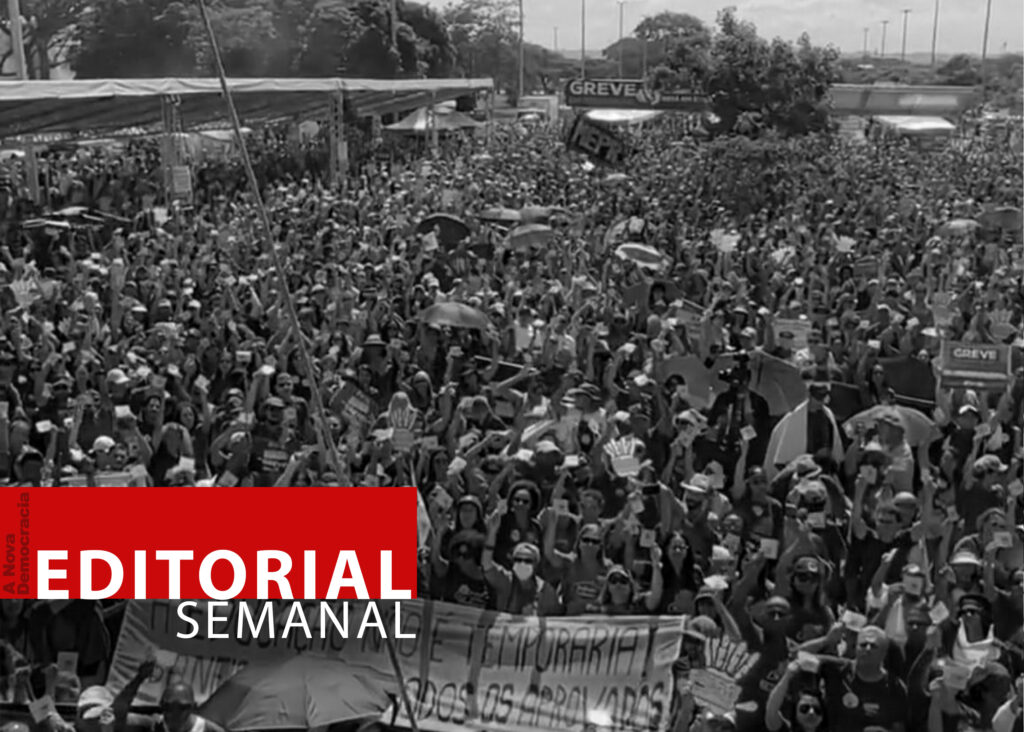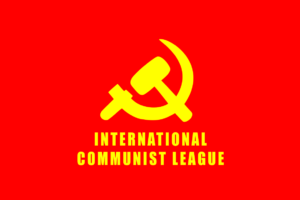
AND Weekly editorial – The political crisis is jumping to a higher level
We publish an unofficial translation of the last Weekly Editorial published in A Nova Democracia (AND), the 16th of May.
On the 3rd of May, Bolsonaro’s doormat, Lieutenant Colonel Mauro Cid, was arrested along with other former occupants of the Planalto Palace for Operation “Venire”. It was the beginning of an offensive of the siege that is closing in on Bolsonaro, the Weak . This is just one of the elements of the depp crisis, but it is extremely important; political and institutional crisis that the result of the last elections did not quell, and only made it worse in the military aspect, making it jump to a new level.
The investigation, conducted by federal agencies and the Federal Supreme Court [Supremo Tribunal Federal – STF] – whose enormous power and concentration of functions is an aberration within the framework of its own reactionary constitution – has already intercepted compromising talks, in which Bolsonaro’s collaborators discuss operational details of his plan for institutional rupture, which culminated in the second bolsonarada on January 8. In one of the audios, Ailton Barros (the “Bolsonaro’s 01”) states that it is necessary to put pressure on the then commander of the ground force to assume the initiative of a total military intervention; in another, in anger at the failed attempt, he claims that the Army High Command is lacy and that it is necessary to raise the military despite this, to drag the high command, indicating that they knew the whole plan (confirming everything we have denounced since 2019 on this platform) . This same guy – who has an unquestionable connection with the “militias” who inherited the death squads in Rio de Janeiro – also stated that he “knows everything” about Marielle’s death. Does anyone doubt that Bolsonaro – the boss – and the military leadership know everything and a little more?
Continue forward with the investigations is clearly a calculated move. All of this leaks of information is the result of tapping conversations during years; they were, obviously, known by the “authorities” who now reveal them to the whole country, in suspicious “leaks to the press” – in fact, deliberate giving for them to be disclosed. But they come to light now, when Bolsonaro lost his post and returned from the United States, having his passport withheld.
These initiatives of the traditional right – having the Supreme Court as their core – partly satisfy and partly contradict the interests of the hegemonic military right in the High Command of the Armed Forces (ACFA). They satisfy, as they increasingly “burn” Bolsonaro, which makes it easier for the generals to impose their absolute command in the preventive counterrevolutionary offensive, underway since 2015, and to snatch the barracks firefighters and the low and medium officers (reserve and active). ) of the influence of the Bolsonarist extreme right. Relative success on this front is noted, because although Bolsonaro has not become insignificant, Bolsonarism as a political and social phenomenon has become defensive and has suffered a certain amount of demoralization, including in the barracks. They contradict, as such initiatives give the STF a “moderation” power that the generals want for themselves, just as they strengthen the coalition of the traditional right and opportunism, which resists the coup d’état by raising a festering bastion of defense of this old democracy, the system of exploitation, national subjugation, corruption and the slaughter of the poor. The hegemonic right in the ACFA still has to deal with the enormous pressure inside the barracks; struggles within it and between it and the extreme right, causing internal disjunction, a relevant obstacle to fulfilling its plans. The situation reveals the paradox and defeats of the ACFA’s counterrevolutionary offensive in its “slow, gradual and safe” coup attempts.
Furthermore, the political crisis is also deepening within the reactionary coalition government and in its relationship with the other power groups. Luiz Inácio and the PT were not elected as in their three previous terms. His government lacks relative popular credibility; the time is not one of expansion of bureaucratic capitalism; the political-institutional framework is not one of relative stability; the world situation today is one of a general crisis of enormous gravity, world disorders and tendency to wars and revolutions. Times are different; its task of reconciling the varied interests is extremely more difficult.
The reactionary coalition in government does not have a solid majority parliamentary base – as evidenced by its defeats in Congress, as in the “conciliation framework”. The popular masses do not lend him enthusiasm, and the relative illusion that a minority still harbors is increasingly crumbling. And behold, Luiz Inácio, in an attempt to obtain victories in Congress, resorts to the bad vices of that old democracy, now openly, even adopting the device created by Bolsonaro and which he criticized so much: the amendments left by the “secret budget”, qualified by the current president himself as “outgrowth”. The value released by the secret budget is a record, which not even the captain of the bush [Translator’s note: in reference a Bolsonaro, he was a captain of the Army] was able to reach: R$ 46.3 billion. Faced with the growing danger of destabilization of his government due to the explosive situation of the crisis, he even returned the Institutional Security Office (GSI) [Gabinete de Segurança Institucional – GSI] to a general, who in a recent interview described as “too heavy” the statement that Bolsonaro carried out a process of politicization of the Armed Forces. This is Luiz Inácio, who was elected with the banner of demilitarizing the Planalto Palace.
In turn, the popular masses are raising popular protest – as yet another reflection of the political and legitimacy crisis of the government and of this entire old democracy. The nationwide teachers’ strike demanding the application of the national minimal wage is a striking example – as was the health workers’ strike before. Land occupations in different regions of the country, carried out by peasant masses, resume the heroic saga of peasant battles in 2020-2021 in the Manoel Ribeiro and Tiago Campin dos Santos areas, in Rondônia, led by the League of Poor Peasants [Liga dos Camponeses Pobres – LCP]. The smaller strikes of workers and salaried workers explode throughout the country (despite millionaire daily fines determined by this aristocratic judiciary). It is necessary to link them to the political struggle to completely unmask this reactionary government and clash with the coup plot in progress. If this happens, the coup generals and the opportunist government, both committed to maintaining the old order, will have many problems ahead.

